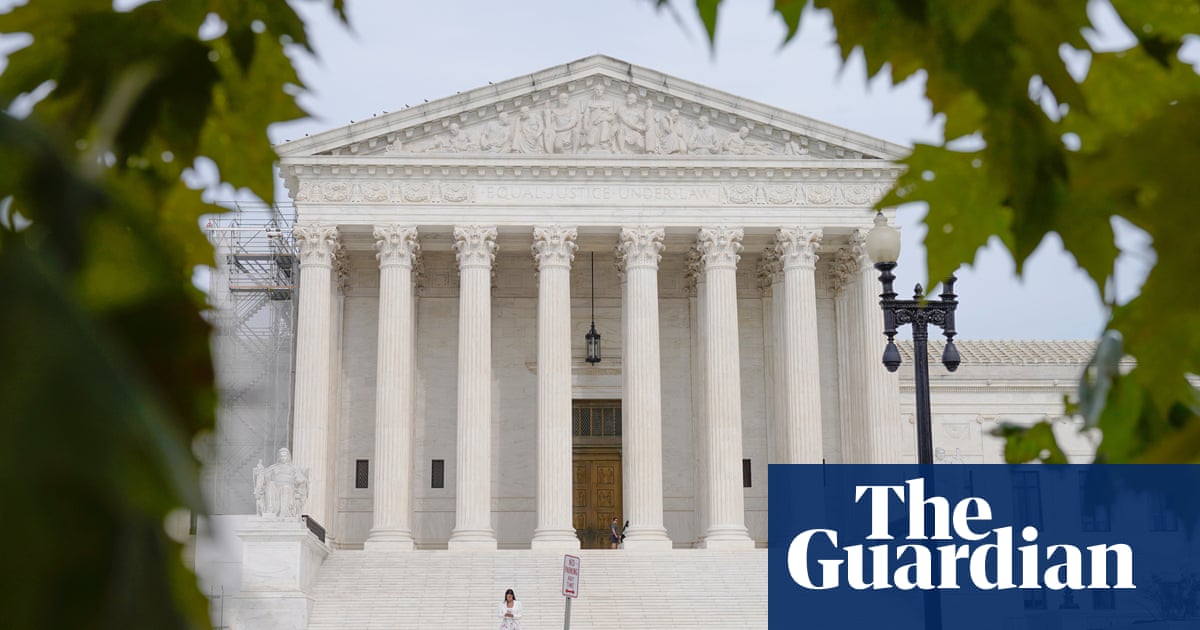Joe Biden worries that the “extreme” US supreme court, dominated by rightwing justices, cannot be relied upon to uphold the rule of law.
“I worry,” the president told ProPublica in interview published on Sunday. “Because I know that if the other team, the Maga Republicans, win, they don’t want to uphold the rule of law.”
“Maga” is shorthand for “Make America great again”, Donald Trump’s campaign slogan. Trump faces 91 criminal charges and assorted civil threats but nonetheless dominates Republican polling for the nomination to face Biden in a presidential rematch next year.
In four years in the White House, Trump nominated and saw installed three conservative justices, tilting the court 6-3 to the right. That court has delivered significant victories for conservatives, including the removal of the right to abortion and major rulings on gun control, affirmative action and other issues.
The new court term, which starts on Tuesday, could see further such rulings on matters including government environmental and financial regulation.



Americans largely haven’t had much of a choice. In states where the laws are decent and political corruption isn’t heavily entrenched, things are alright and the system isn’t totally broken. But in places where it has? There’s less and less ability to vote in more reasonable laws.
The problems are systemic. The same states have shitty education systems, mass voter disenfranchisement of prisoners and anyone else they can justify taking the vote from, extensive gerrymandering, and every other form of corruption and political inefficiency. The major population centers take a very different approach, but they have to compete with these backward and broken states through an electoral system that skews the results in their favor.
Trying to take direct action outside of the official political framework is also problematic. In Europe you’ve got the benefit of an extremely high population density and a relatively small area regardless of which country you’re in. In the US everything is extremely spread out. The result is that protest is often not terribly effective. You might be able to shut down a couple of streets, but there’s no way you’re disturbing commerce for more than a single metropolitan area (of which there are many) at a time. It’s the same reason mass public transit runs into issues: we’re way too spread out for strategies that require high and comparatively uniform population density.
That doesn’t mean there’s no answer, but it does mean we’re going to have to get a little more creative.
People take for granted what made Occupy special. We all rally around the fact that folks that normally wouldn’t recognize they’re all the 99% came together. But the real win was that it was everywhere all at once all the time.
Right, but compare the effort to the results. People were bussing in from all over the country, but like what actually changed?
Same thing with the BLM protests. The largest protest movement in American history and… nothing changed. COVID kills a million plus Americans and all that changed is OSHA was banned from enforcing worker safety measures. No extra disease tracking, no countrywide efforts to improve air quality. We’re stuck in a quagmire where leaders just wait out problems rather than needing to address them.